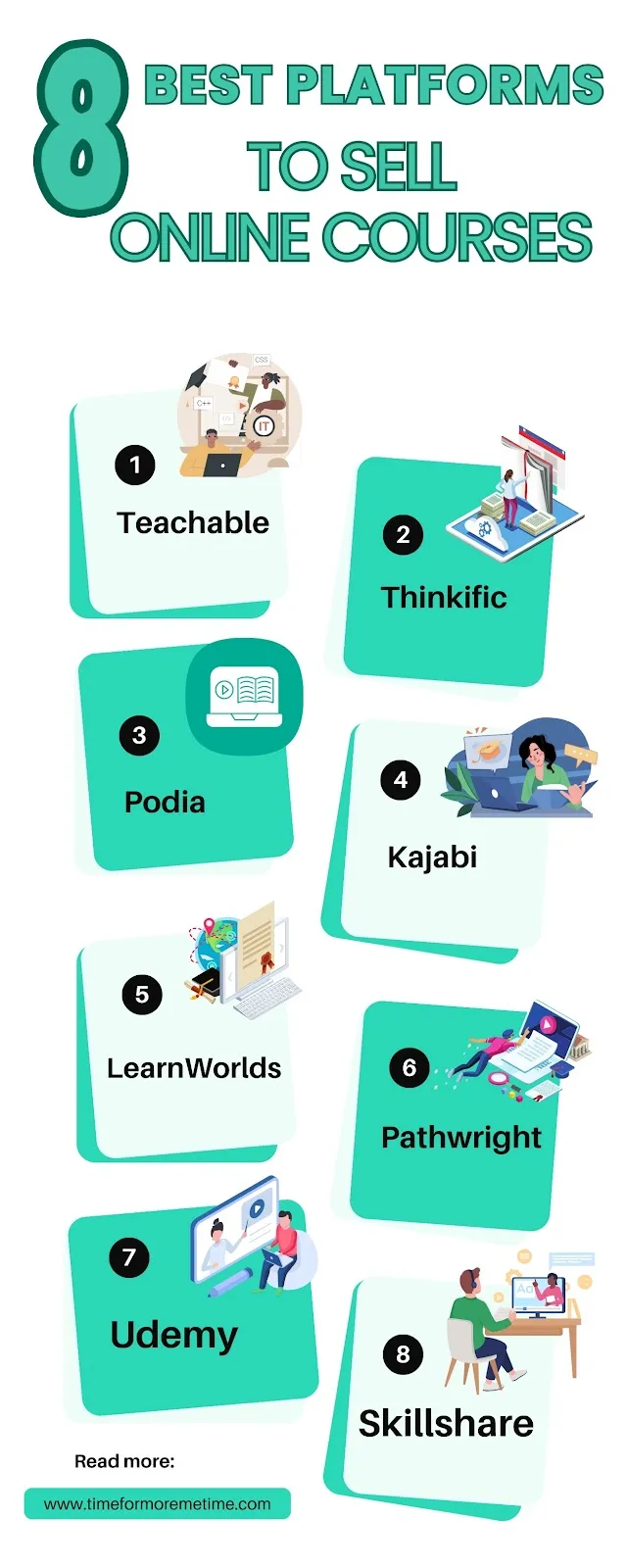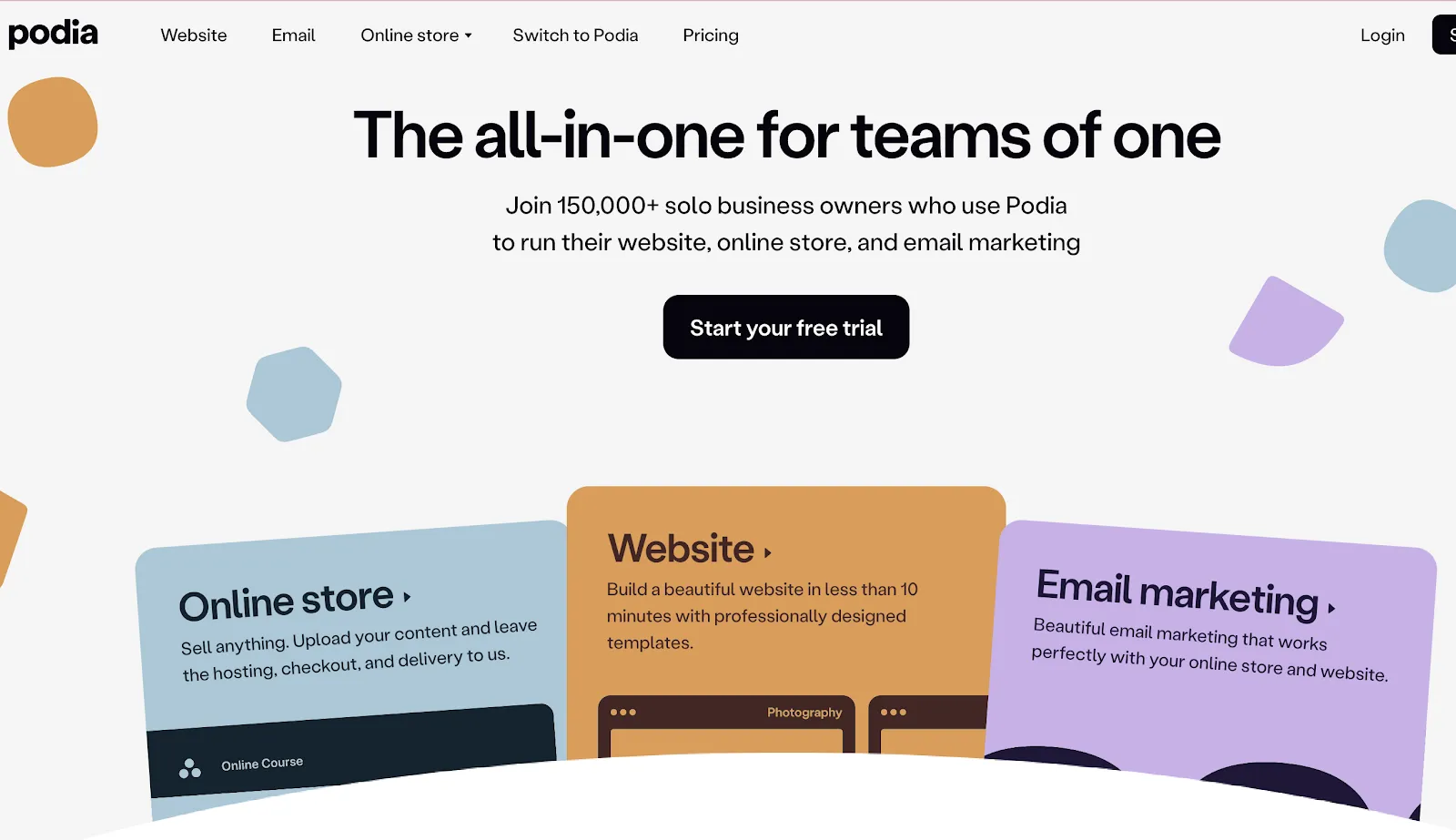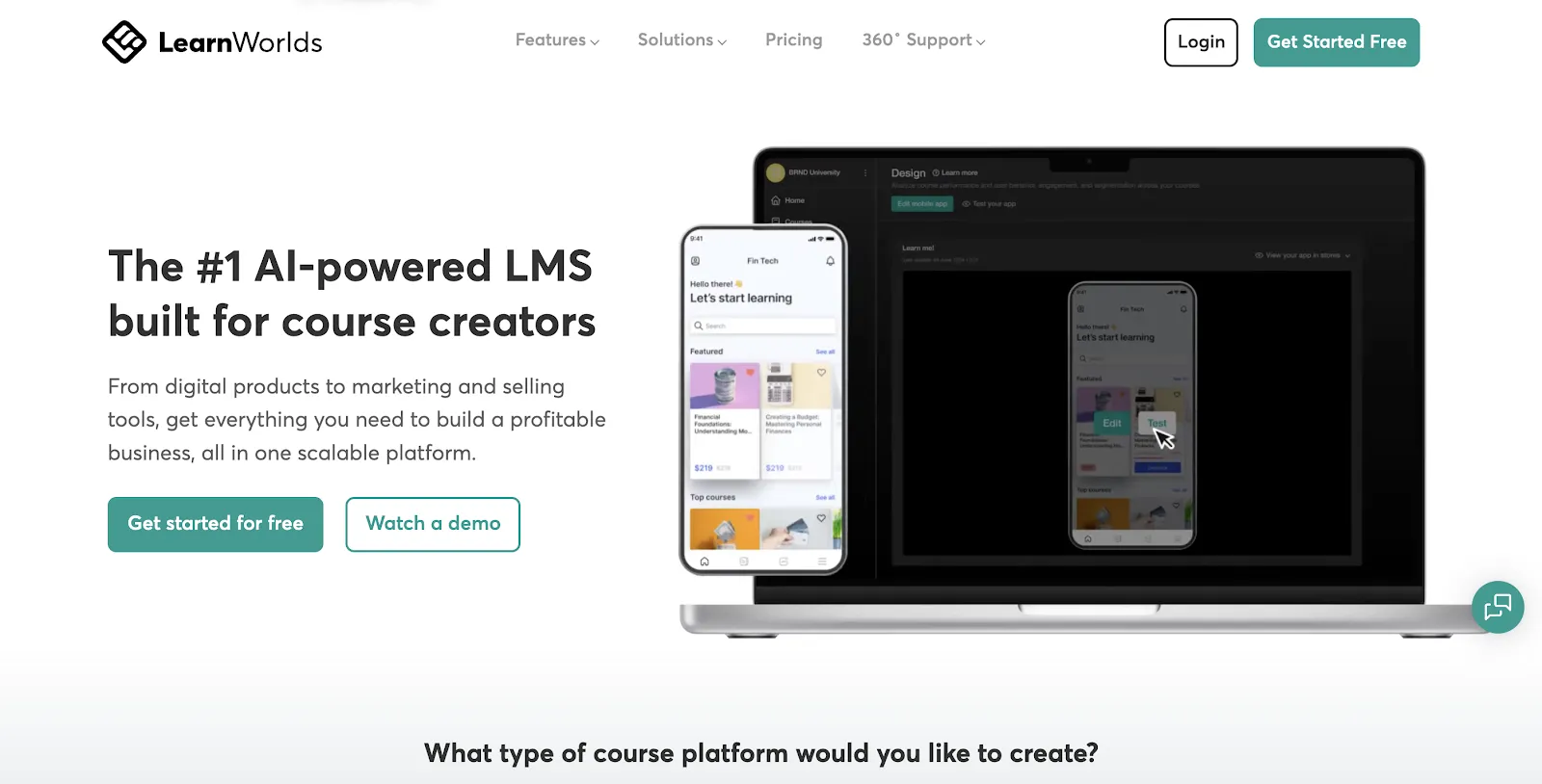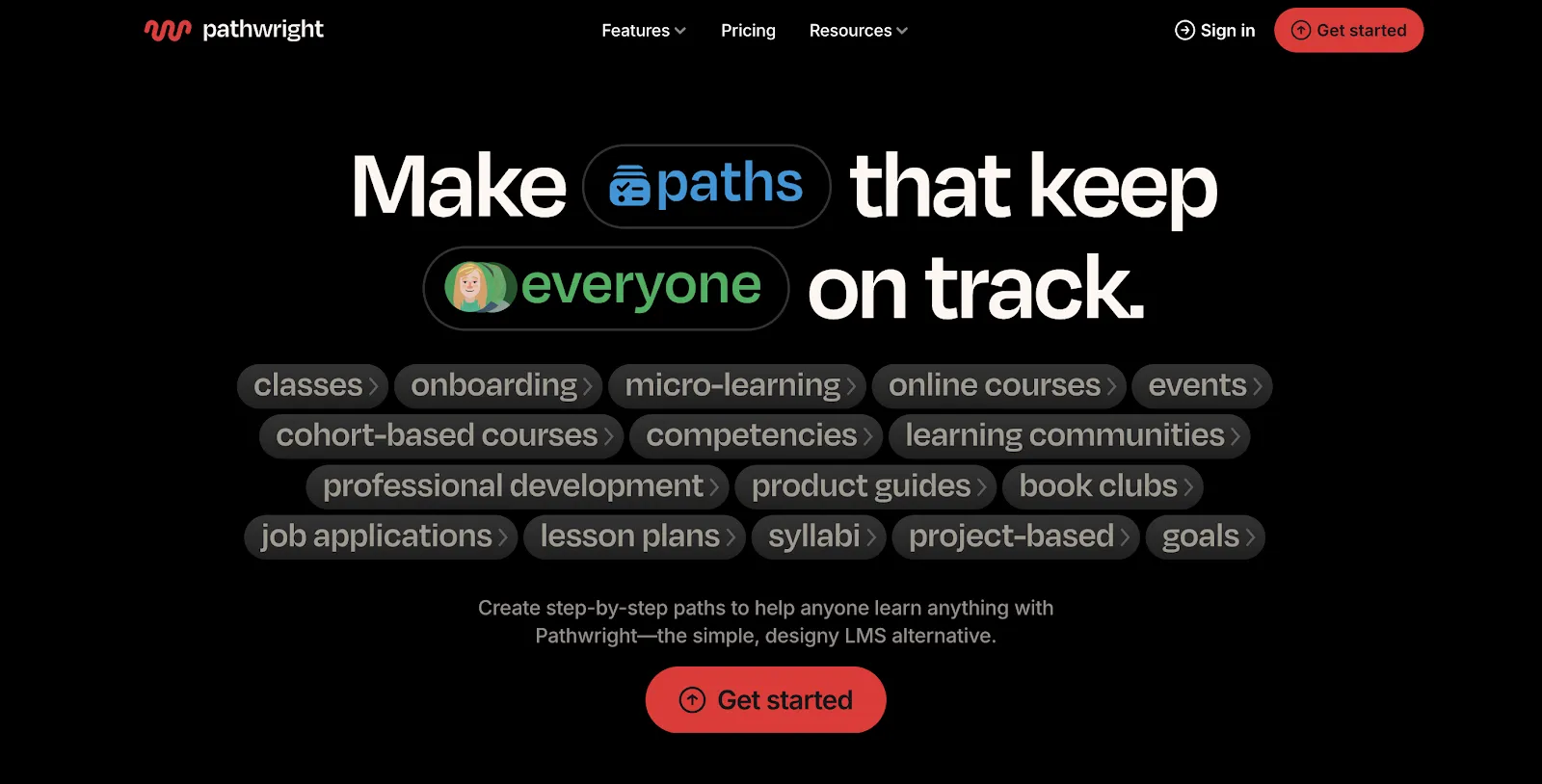If you have a passion for teaching, selling online courses is definitely a smart move to consider. After all, it’s one of the most lucrative side hustles available today. But, to succeed in this industry, you need to use the best platform to sell online courses.
The right platform can make all the difference—it affects how you structure your courses, engage with students, and ultimately, how much revenue you generate. A great course platform offers user-friendly tools, seamless payment processing, and marketing features that help you attract and retain students.
With so many options available, choosing the right one can feel overwhelming. That’s why I’ve rounded up the top 8 platforms that provide the best features, flexibility, and support to help you build, launch, and scale your online course business successfully.
Before diving into the best platform to sell online courses, you may be wondering why this opportunity is so appealing.
Well, the demand for knowledge is insatiable. People are eager for information that can enhance their lives—whether it’s financial, emotional, spiritual, physical, social, or mental.
With this in mind, I also planned to develop an online course. Unfortunately, I currently lack the time to do so. Instead, I’m focusing on writing articles that teach people about finances and time management, which is why you’re reading this. One step at a time, as I always say.
In the future, I intend to compile the knowledge I’m sharing into either an online course or an eBook. But for now, I want to make the most of the time I’ve spent researching online courses by sharing my findings with you.
Today, I’ll focus on the best platforms for selling online courses. Again, choosing the right platform is your first step toward success in this endeavor. Now, let’s get started!

1. Teachable

Our first stop is Teachable. As of this writing, it boasts over 200,000 creators who teach more than 38 million students. That’s impressive, right?
Teachable has achieved these numbers by providing a user-friendly platform that both educators and learners appreciate. It also includes built-in marketing features that effectively attract students and make it easy for educators to promote their content.
In terms of pricing, Teachable offers great flexibility. You have control over your course prices, can set membership pricing, and even create bundled packages.
This flexibility allows you to maximize your profits while making it easier for students to consider your courses. Also, payment processing is straightforward as well, enabling you to handle transactions securely while offering global payment options.
Teachable’s student management tools allow you to view and analyze your students’ progress and engagement, providing valuable insights to enhance your courses.
So, if you’re looking to build a professional and profitable online course, I can say that Teachable is the best platform to sell online courses today.
2. Thinkific

Thinkific stands out for its intuitive course creation tools and flexible customization options. With a drag-and-drop editor, it makes designing and structuring your content a breeze.
Getting started with Thinkific is straightforward.
You can create lessons that include video content, quizzes, and downloadable resources. The platform also supports various content delivery methods, allowing students to purchase courses individually or access multiple courses through a subscription.
If you’re looking to reach a larger audience, Thinkific’s marketing tools can help.
These include features like coupons, email integration, and sales widgets to promote your courses. You can also enhance your marketing and e-commerce capabilities by integrating with powerful tools like Shopify, ActiveCampaign, and Zapier.
Additionally, Thinkific’s analytics tools provide valuable insights into student progress and course performance. Understanding these metrics makes it easier for you to refine your teaching approach.
With its wide range of features, Thinkific is the best platform to sell online courses for both beginners and experienced educators looking to scale their online teaching business.
3. Podia

Podia is an all-in-one platform that makes it easy for creators to offer courses, digital products, and memberships. Its user-friendly dashboard streamlines the process, allowing you to manage everything in one place.
Like the other platforms mentioned, Podia offers a wide array of marketing features. You can send newsletters, run drip campaigns, and provide updates effortlessly, all without needing additional tools!
One of the best aspects of Podia is that it doesn’t charge transaction fees to educators, making it the best platform to sell online courses without the need for big capital.
If you want to maximize your earnings, Podia could be the ideal platform for you. With its intuitive design and cost-effective features, it’s a great choice for managing and promoting your online courses.
4. Kajabi

Another premium platform for selling online courses is Kajabi. Kajabi is not just an online course platform; it’s a comprehensive solution for all types of content. You can use it for newsletters, community building, and even hosting podcasts.
Kajabi is feature-rich, offering built-in analytics dashboards that track revenue, student progress, and campaign performance. Its goal is to help you effectively spread your message and maintain control over your profitability.
However, all these great features come at a price. Kajabi is a higher-cost option due to its extensive tools, strong branding, and marketing capabilities. As a result, it’s a top choice for serious entrepreneurs looking to build a business in the online education space.
5. LearnWorlds

Looking to create engaging and interactive learning experiences? Try LearnWorlds. It offers advanced tools that allow instructors to enhance their courses with quizzes, assignments, certificates, and interactive videos—all of which can boost student engagement.
Unlike the other platforms mentioned, LearnWorlds functions primarily as an online learning management system (LMS). This means it’s not just a platform for selling video content; it provides teachers with the actual tools needed for teaching, facilitating, and training.
One of its standout features is the LMS’s AI capability, which can assist you in every step of establishing the material you need to teach and train. Essentially, it simplifies the process of disseminating information and effectively teaching students.
Unfortunately, as robust as it is, I wouldn’t recommend LearnWorlds as your first online course platform. Although it’s not the best platform to sell online courses for beginners, it’s an excellent choice if you want to teach students online effectively or host training seminars for coworkers and other adults.
6. Pathwright

Pathwright is another LMS that stands out for its unique approach to creating an immersive and conducive learning experience through its structured paths. It provides robust support for teachers in delivering effective instruction.
Despite being the best platform to sell online courses with sophisticated features, Pathwright is actually quite simple to use for developing courses and training materials. It also incorporates gamification elements, which are ideal for engaging Gen X and younger learners, making the learning process more effective.
However, like the previous platform, Pathwright is not designed for quick profits. It is intended for actual faculty members with at least a thousand students ready to learn. While it offers great tools, it may not be the best fit for beginners like you or me.
7. Udemy

Udemy is one of the most well-known course marketplaces, providing access to a large, built-in audience. For creators looking to reach a broad spectrum of students quickly, Udemy is an excellent choice.
The platform handles all payment processing and marketing, allowing you to focus solely on content creation. However, Udemy takes a percentage of your revenue, and you have limited control over course pricing structures and branding.
Udemy also offers course promotions during site-wide sales, which can help with visibility but may affect your earnings per course. The platform provides analytics on minutes watched and student engagement, giving you valuable insights into your course’s performance.
One downside is that Udemy doesn’t allow for much customization. However, both you and your learners will appreciate how straightforward the platform is. Students can easily browse and find what they want to learn, while you can simply upload your educational content.
While it may not be feature-rich or highly customizable, Udemy is an excellent starting point for new educators. It can provide you with exposure and credibility, especially if your courses gain popularity.
If you’re a new educator looking to quickly establish an online presence, Udemy’s marketplace model can be a valuable foundation for building your audience.
8. SkillShare

Last but not least, we have SkillShare. You’ve probably heard of this platform, as it runs one of the most aggressive ad campaigns on YouTube and is popular among creators, especially those who host educational content.
Unlike other platforms, SkillShare primarily focuses on practical and creative educational content, which might be right up your alley.
With over 12 million registered users, SkillShare provides you with a large, engaged audience. You don’t need to worry about initial fees; you can host courses for free, eliminating upfront costs and allowing you to focus solely on content creation.
Think of it as an alternative to YouTube that lets you monetize based on actual view “counts” rather than relying solely on ads.
Your earnings on SkillShare are based on the number of minutes watched in your courses. You can also receive referral bonuses for bringing in new members. Additionally, SkillShare helps you build your personal brand within the creative community, enhancing your visibility and credibility.
FAQs
Need more information about online courses and platforms? Here’s the FAQ section before we conclude this post!
How do I choose the right platform for my online course?
There are several factors to consider when selecting a platform. If you’re a complete beginner, think about ease of use, pricing, marketing tools, customization options, and the type of audience you want to reach.
These are critical considerations for anyone starting out. While some platforms offer similar features and benefits, remember that each one has its strengths. Choose a platform that aligns with your goals.
What types of content can I include in my online course?
You can include a variety of content types, such as video lectures, quizzes, assignments, downloadable resources, and interactive elements. The more diverse your content, the more engaging your course will be.
However, make sure to align your educational content with the strengths of your chosen platform. Some platforms may specialize in arts and creative subjects, while others are better suited for specialized or technical knowledge. Tailor your content to fit the platform you select.
Can I host my courses on multiple platforms?
Yes, you can host your courses on multiple platforms. However, keep in mind that managing content across different platforms can be time-consuming. Ensure that you maintain consistency in your branding and course materials to provide a seamless experience for your students.
Conclusion
Selling online courses offers a great chance for teachers and creators to earn. However, it’s important to remember that it’s not easy money. You will need to put in a lot of work for content creation, lesson planning, and marketing.
In some cases, you may also have to manage students and provide personal teaching on certain platforms.
With a growing need for knowledge in many areas, online course platforms provide different features suited to various teaching styles and audience needs.
By choosing the best platform to sell online courses, you can effectively reach and connect with your target audience. Whether you’re an experienced teacher or just starting out, these platforms give you the tools you need to create, market, and sell your courses successfully.
And no matter which platform you choose, your success depends on the quality of your lessons and content. While I can’t teach you everything about that, I’m sure you’ll learn how to get better over time.
When it comes to making and saving money and time, I’m here to help. Be sure to follow this site and my YouTube channel for more tips. Good luck!
Sources
- Photo: Unsplash: Lewis Keegan






